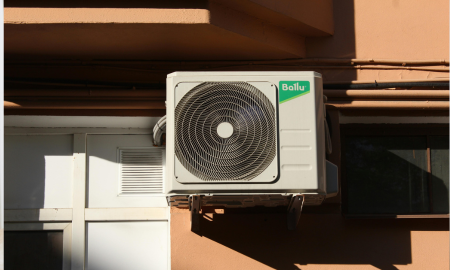Business HVAC Guide: Choosing The Right System For Your Company

Is it time to upgrade your workplace’s HVAC system? The quality of your heating, ventilation and air conditioning is key to maintaining a comfortable and healthy environment, which in turn can impact employee productivity and customer satisfaction. The cost of running your HVAC system is also important if you’re a company operating on a tight budget - a new system could be significantly cheaper to run.
HVAC systems can come in many different forms. In order to choose the right system, it’s important to consider a variety of factors from the size of the system that you need to the energy-efficiency. The following guide delves deeper into all of these factors.
Size and layout
The size and layout of your premises will greatly determine the best type of HVAC system for you. Start by calculating the square footage of your space - larger workplaces will require more powerful systems. The power of systems is measured in BTUs and a building typically needs 24 BTUs per square foot. This means that a 1000 square foot building will typically need a HVAC system with 24000 BTU output.
Large open spaces with high ceilings such as warehouses, gyms and factories may require more powerful systems than buildings with lots of small individual rooms. Ducts to be evenly placed around large open spaces so that heat and cooling is evenly distributed. Buildings with lots of individual rooms may be able to have individual systems in each room.
Climate
What is the natural temperature of your workplace, and how much do you need to alter the temperature to help it reach your desired comfort levels? A workplace in a very cold or hot region is going to rely on its HVAC more heavily and may need something more powerful and robust. If you’re based somewhere with a fairly temperate climate, you may be able to get away with a more basic system as you won’t need to use it as heavily.
How you use your workplace can also impact the internal temperature. Buildings that are often crowded with people like music venues can heat up more quickly due to all the body heat and may require more demanding air conditioning. Factories and servers may also need higher powered cooling in order to prevent machinery overheating.
Make sure to also consider how well insulated your workplace is. Poorly insulated workplaces will need more powerful systems to keep them hot, whereas well insulated workplaces may be able to get away with less powerful systems.
Energy-efficiency
Energy-efficiency is important to consider if you want to save money and stay green. When comparing different HVAC systems look into the SEER (Seasonal Energy Efficiency Ratio) rating as this gives you a good idea as to how energy-hungry a system is. A SEER of 14 is a good benchmark for commercial use, but aim for 20+ if your budget allows it.
How the energy is generated can also impact overall costs and sustainability. Heat pumps are becoming a more popular alternative to traditional furnaces and have the potential to slash costs by 50%. Solar panels can meanwhile allow you to generate all your energy from the sun and not have to pay an energy bill again. However, both heat pumps and solar panels can come with a high installation cost.
Ease of maintenance
No company wants a HVAC that is a headache to maintain. Downtime can disrupt business, so try to invest in a reliable system that can meet the demands of your business. This is why it’s ultimately important to find a system that is powerful enough for your workplace - overworking a low-powered system will result in more problems.
Modular systems with easy to reach components can typically be cheaper to repair. Make sure to consider warranties as these could save you costs on repairs too - some HVAC systems will come with warranties of up to 10 years, while others may only be protected for one year.
Filtration, humidification and ventilation
A great HVAC system does more than just heating and cooling - the best systems also manage air quality helping to maintain moisture levels and reduce contaminants in the air.
Many HVAC systems will come with HEPA filters that can filter out dust, pollen and even viruses. It’s worth looking into the MERV (Minimum Efficiency Reporting Value) rating to determine how efficient a system is at filtering out contaminants. Ratings of 13 and above are suitable for most commercial settings, however factories and buildings in heavily polluted areas may need much more powerful filtration systems.
HVAC humidification is meanwhile important to consider if your workplace has very dry air or is very humid. Integrated humidifiers will help to add moisture to the air - which could be important to stop certain products or materials drying out - whereas dehumidifiers can help combat problems like mold.
Ventilation is meanwhile important to prevent air getting stale and for avoiding issues like ‘sick building syndrome’. Restaurants and gyms will typically need robust ventilation systems to reduce odors and CO2 build-up. Factories may meanwhile need specialized ventilation systems to get rid of dust and fumes and keep the workplace air quality safe.
Zoning and smart controls
Zoning allows you to individually heat different spaces to different levels, which can be important for some buildings like hotels. In fact, many hotels allow guests to manually control their own heating and cooling in their room, while having separately controlled HVAC for lobby areas.
Smart technology can meanwhile allow you to remotely control and monitor the temperature and ventilation in each room. Such systems can even be automated to adjust by themselves to different temperature levels using sensors.
Ease of installation
Finally, it’s important to consider ease of installation. Consider what type of existing system you already have in place - it’s likely you’ll want to use the ductwork that is already there.
Image source: Gustav Mahler via Pexels.






